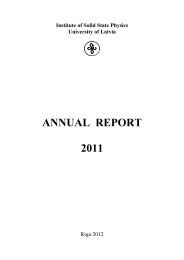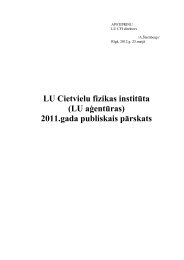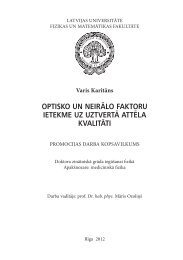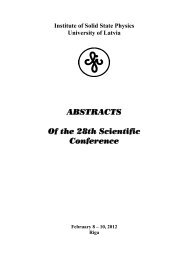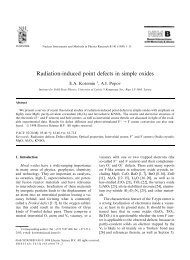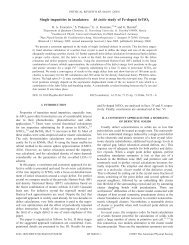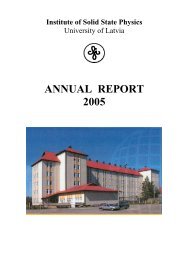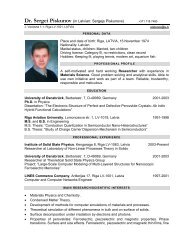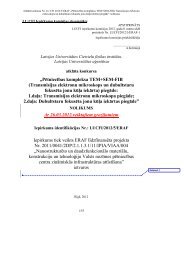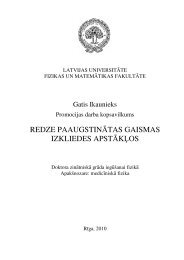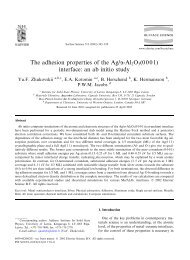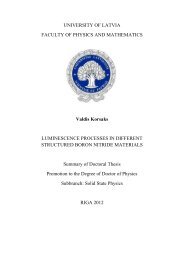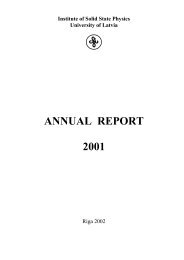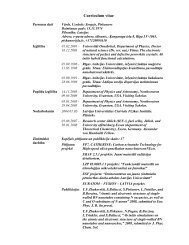Annual Report 2012 - Latvijas Universitātes Cietvielu fizikas institūts
Annual Report 2012 - Latvijas Universitātes Cietvielu fizikas institūts
Annual Report 2012 - Latvijas Universitātes Cietvielu fizikas institūts
You also want an ePaper? Increase the reach of your titles
YUMPU automatically turns print PDFs into web optimized ePapers that Google loves.
the same time, different ionic liquids with higher temperature stability should be selected<br />
for composite preparation. Such materials will find application in medium range PEM<br />
fuel cells. In this work, only biodegradable ionic liquids were used for composite<br />
preparation.<br />
Hydrogen application research: Combined hydrogen, heat and power system is<br />
designed for Academic Centre of Natural Sciences (the territory of new Campus of<br />
University of Latvia), based on DFC300 power station (J.Dimants et all, <strong>2012</strong>). Fuel<br />
supply to DFC300 is planned in three stages: 1) natural gas from city pipeline; 2) locally<br />
produced biogas mixed with natural gas from city pipeline; 3) only locally produced<br />
biogas mixed with synthesized on site methane.<br />
Fuel cell power station as installed serves as the primary power source for Academic<br />
Centre of Natural Sciences, as an emergency power source for Academic Centre of<br />
Natural Sciences when the grid service is not online, as heat supplier to pre-heat the<br />
Academic Centre of Natural Sciences in winter season and hot water supplier to<br />
technical and service needs. Wind power and solar PV units are connected in grid and is<br />
powering electrolyser to generate additional hydrogen for CO 2 +H 2 reactor to recover<br />
carbon dioxide from DFC300 exhaust. Hydrogen has a potential becoming a key factor<br />
in driving energy system to a sustainable trajectory. Hydrogen usage in stationary and<br />
mobile applications without damaging emissions is highly regarded. By using hydrogen<br />
energy, the end user can contribute in maintaining long-term energy stability. Public<br />
acceptance and knowledge expression is a substantial factor in order to implement<br />
renewable energy projects. Main results of survey show that majority of the respondents<br />
are very positive about renewable technology implementation idea in the University of<br />
Latvia Academic Centre Of Natural Sciences. Nevertheless many respondents are highly<br />
concerned about safety issues of the renewable energy technology. This means that<br />
safety education must be implemented and discussed more with society. As well as<br />
students and future students strongly agree that access to renewable energy technologies<br />
in the campus area during studies is an important part of student practical training.<br />
Students, academia as well as future students does support implementation of renewable<br />
technologies to improve the quality of learning, sustainable development of the<br />
university campus and green life style.<br />
136



